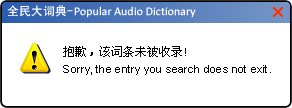自【zì】
1. oneself; self 2. of course 3. from; since
[代]1、本人;自己 [副]2、当然 [介]3、从;由

约翰自称是物理学家。
John describes himself as a physicist.

公道自在人心。
Justice lies in people's heart.

自他离开学校,就没有他的消息。
No one has had any news about him since he left school.
自暴自弃【zì bào zì qì】
have no ambition at all; be resigned to one’s backwardness; give oneself up as hopeless
[成]自甘落后,不求上进

自暴自弃的人是不会有什么成就的。
Those who give themselves up as hopeless can achieve nothing.
自卑【zì bēi】
feel inferior; be self-abased; self-abasement; self-contempt; self-humiliation
[形]轻视自己,觉得自己不如别人

自卑的人应该得到更多的鼓励。
Those who feel themselves inferior should get more encouragement.
